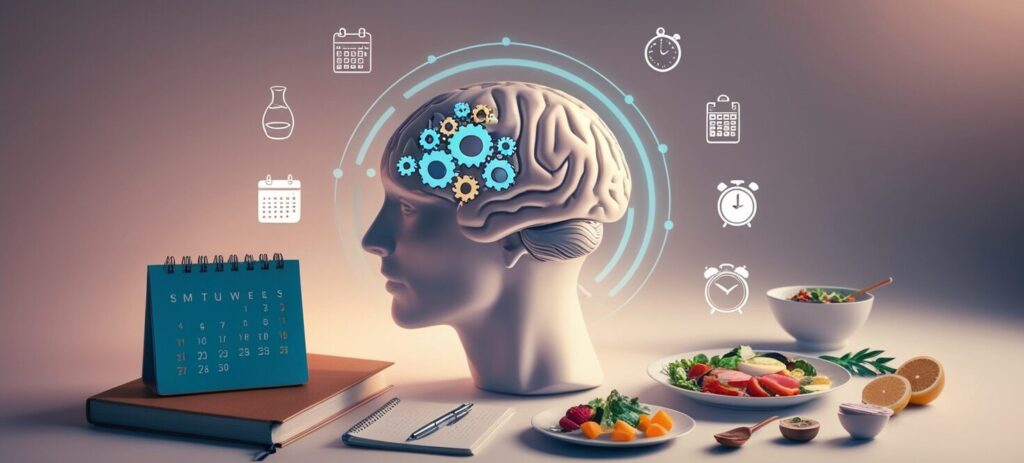
The Science and Strategy Behind Successful New Year’s Resolutions: A Comprehensive Guide to Lasting Change
Introduction
New Year’s resolutions are a universal tradition, symbolizing hope, renewal, and the pursuit of self-improvement. Every January, millions of people worldwide set ambitious goals, envisioning the fresh start of a new year as an opportunity to overcome challenges, break bad habits, and embrace positive change. These resolutions often reflect a collective desire for a better future and serve as a cultural ritual of renewal and progress.
However, despite their widespread appeal, many resolutions fail to materialize. Studies indicate that many individuals abandon their goals within weeks, often due to psychological barriers, unrealistic expectations, and a lack of strategic planning. Understanding the mechanisms behind this pattern offers valuable insight into how to set resolutions that endure. This guide delves into the science of habit formation, the psychology of motivation, and practical strategies for achieving lasting change, providing a roadmap for turning aspirations into reality.
The Science of Habit Formation
Defining Habits: Automatic Behaviors That Shape Our Lives
Habits are the foundational blocks of daily behavior, formed through repetition and reinforced by rewards. They operate largely on autopilot, allowing us to conserve mental energy for more complex tasks. Whether beneficial or detrimental, habits profoundly influence our long-term outcomes. For example, brushing your teeth every morning requires little conscious effort but has significant long-term benefits for your health.
The Role of the Brain in Habit Formation: Understanding the Habit Loop
The habit loop, a concept popularized by Charles Duhigg in The Power of Habit, consists of three components: a cue, a routine, and a reward. Neural pathways in the basal ganglia facilitate the creation of these loops, making habitual actions automatic over time. For instance, the cue might be feeling stressed, the routine could be eating junk food, and the reward might be a temporary sense of comfort. Interrupting or altering this loop is key to modifying behavior.
Why Habits Are Hard to Change: Cognitive and Emotional Barriers
Breaking ingrained habits requires overcoming resistance from both the brain and emotional attachment. Cognitive dissonance, fear of failure, and comfort in familiarity often impede progress. For example, someone trying to quit smoking may struggle because the habit is tied to emotional comfort or social rituals. Overcoming these barriers necessitates deliberate effort, resilience, and a clear understanding of the underlying triggers.
Setting the Stage for Successful Resolutions
The Importance of Self-Reflection Before Setting Goals
Effective resolutions begin with introspection. Understanding personal motivations, strengths, and past patterns provides a roadmap for setting meaningful and achievable objectives. Ask yourself: What do I truly want to achieve? Why is this goal important to me? What obstacles have I faced, and how can I overcome them?
SMART Goals: A Framework for Resolutions That Stick
The SMART framework—specific, measurable, achievable, relevant, and time-bound—ensures clarity and focus. Vague aspirations like “get healthier” lack direction, while SMART goals such as “exercise for 30 minutes three times a week” offer a structured path to success. This framework helps break down larger goals into manageable steps, making them less overwhelming and more attainable.
The Power of Intentionality: Aligning Resolutions with Core Values
When resolutions resonate with one’s core values, they hold deeper significance. Aligning goals with personal beliefs fosters intrinsic motivation and long-term commitment. For example, if family is a core value, a resolution to spend more quality time with loved ones will feel more meaningful and sustainable than a generic goal like “be more social.”
The Psychology Behind Motivation
Intrinsic vs. Extrinsic Motivation: Which Drives Long-Term Change?
Intrinsic motivation, driven by internal satisfaction, proves more sustainable than extrinsic incentives like social approval or financial rewards. For instance, exercising because it makes you feel energized and confident is more enduring than doing it solely to impress others. Understanding these dynamics helps prioritize authentic and enduring goals.
The Role of Willpower and Discipline in Sustaining Habits
Willpower acts as a finite resource that can be strengthened through practice. Building discipline through incremental challenges reinforces perseverance in habit formation. For example, starting with small, manageable changes—like drinking more water daily—can build the mental resilience needed for larger goals.
How Emotional States Influence Commitment to Resolutions
Emotions act as catalysts or inhibitors of action. Positive emotional reinforcement strengthens commitment, while negative states, such as stress or self-doubt, often derail progress. Cultivating a positive mindset through gratitude practices or mindfulness can help maintain momentum.
Breaking Old Habits: The Art of Letting Go
Understanding Habit Triggers: Identifying Cues That Fuel Unwanted Behaviors
Recognizing the environmental, emotional, or social cues that trigger undesirable habits is the first step in breaking them. For example, if stress leads to overeating, identifying this trigger allows you to develop alternative coping mechanisms.
The Role of Substitution: Replacing Bad Habits with Positive Alternatives
Substitution replaces negative behaviors with constructive ones, maintaining the habit loop while altering its outcome. For instance, replacing evening screen time with reading fosters relaxation without overstimulation.
How to Overcome Relapse and Maintain Momentum
Relapse is a natural part of habit change. Viewing setbacks as learning opportunities, rather than failures, sustains motivation and promotes resilience. For example, if you miss a workout, focus on getting back on track rather than dwelling on the lapse.
Building New Habits: Strategies for Success
The Power of Micro-Habits: Small Changes for Big Results
Micro-habits break daunting resolutions into manageable steps. These incremental changes accumulate over time, leading to significant transformation. For example, starting with just one minute of meditation daily can eventually build a consistent practice.
Habit Stacking: Linking New Behaviors to Existing Routines
Integrating new habits into established routines, such as meditating after brushing teeth, leverages existing neural pathways to cement new behaviors. This technique reduces the cognitive load required to adopt new habits.
The role of repetition and consistency in forming habits
Consistency is the bedrock of habit formation. Regular practice strengthens neural connections, transforming deliberate actions into automatic responses. For example, writing daily, even for just a few minutes, can eventually make it a natural part of your routine.
The Social Dimension of Habit Formation
How Accountability Partners Can Strengthen Commitment
Accountability partners provide external motivation and encouragement. Sharing progress with trusted individuals fosters responsibility and adherence. For example, having a workout buddy can make exercise more enjoyable and consistent.
Social Support Networks: Encouragement vs. Peer Pressure
Supportive networks inspire perseverance, while toxic peer pressure can undermine autonomy. Choosing the right community is crucial. Surrounding yourself with like-minded individuals who share your goals can create a positive feedback loop of encouragement.
The Influence of Social Norms on Individual Behavior
Social norms subtly shape behavior through shared expectations. Aligning resolutions with positive societal values reinforces their legitimacy. For example, a culture that values health and fitness can make it easier to adopt exercise routines.
Tools and Techniques for Sustaining New Year’s Resolutions
The Role of Journaling in Tracking Progress and Identifying Challenges
Journaling documents progress uncovers patterns, and highlights areas for improvement. Reflective writing nurtures self-awareness and accountability. For example, tracking your daily habits can reveal trends and help you adjust your approach.
Apps and Technology: Leveraging Digital Tools for Habit Formation
Apps streamline habit tracking and offer personalized reminders. Gamification and data visualization enhance engagement and motivation. For instance, habit-tracking apps like Habitica or Streaks turn goal-setting into a game, making it more enjoyable.
Visualization Techniques: Mentally Rehearsing Success
Visualizing desired outcomes activates neural pathways associated with achievement, fostering confidence and clarity. For example, imagining yourself as a confident public speaker can reduce anxiety and improve performance.
Overcoming Common Challenges
Procrastination: The Silent Killer of Resolutions
Procrastination stems from fear and overwhelm. Addressing the root causes and using time management strategies can combat their effects. Breaking tasks down into smaller steps and setting deadlines can help overcome procrastination.
How to Deal with Setbacks and Plateaus in Progress
Setbacks are inevitable but surmountable. Celebrating small victories and revisiting goals reinvigorates determination during plateaus. For example, if you hit a weight-loss plateau, focus on non-scale victories like improved energy levels.
Managing Expectations: Setting Realistic Timeframes for Change
Realistic timelines prevent discouragement. Incremental milestones ensure steady progress and reinforce positive habits. For example, instead of aiming to run a marathon in three months, start with a 5K and gradually increase your distance.
The Role of Environment in Habit Formation
Designing a Habit-Friendly Environment: Removing Obstacles to Success
A supportive environment minimizes barriers to new behaviors. Simple changes, such as decluttering a workspace or removing unhealthy snacks, can significantly enhance the likelihood of success.
The Impact of Environmental Cues on Behavior Patterns
Environmental cues serve as triggers for habitual actions. Strategically placing reminders or tools in visible locations reinforces desired behaviors. For example, keeping a water bottle on your desk encourages hydration.
How to Use Visual Reminders and Rewards to Reinforce Habits
Visual aids, such as sticky notes or habit trackers, act as tangible prompts for action. Pairing these with small rewards strengthens the association between effort and achievement.
Neuroscience Insights into Habit Formation
The Role of Dopamine in Creating Rewarding Habits
Dopamine, a neurotransmitter associated with pleasure, plays a critical role in reinforcing habits. Celebrating milestones triggers dopamine release, solidifying positive behaviors.
Neural Plasticity: How the Brain Adapts to New Behaviors
Neural plasticity—the brain’s ability to rewire itself—enables the formation of new habits. Regular practice strengthens synaptic connections, embedding routines into daily life.
The Impact of Stress on Habit Formation and Retention
Chronic stress disrupts habit retention by diverting cognitive resources. Stress management techniques, such as mindfulness, safeguard progress and bolster resilience.
Cultural Perspectives on Resolutions
How Different Cultures Approach New Year’s Resolutions
Cultural attitudes toward resolutions vary widely. While Western traditions emphasize individual achievement, collectivist cultures often focus on communal goals.
Global Traditions That Reflect the Desire for Self-Improvement
From Japanese kakizome (first calligraphy of the year) to Scandinavian traditions of reflection, diverse practices illustrate humanity’s shared drive for growth and renewal.
Conclusion
New Year’s resolutions embody the transformative power of intentional change. Grounded in the principles of psychology and neuroscience, they offer an opportunity to reshape habits and unlock potential. By understanding the science of habit formation, embracing strategies for success, and aligning goals with core values, individuals can turn aspirations into enduring realities. As we strive for self-improvement, let us commit not just to fleeting goals, but to building habits that enrich our lives and inspire others. The journey of personal growth is ongoing, and each step forward brings us closer to the best version of ourselves.

